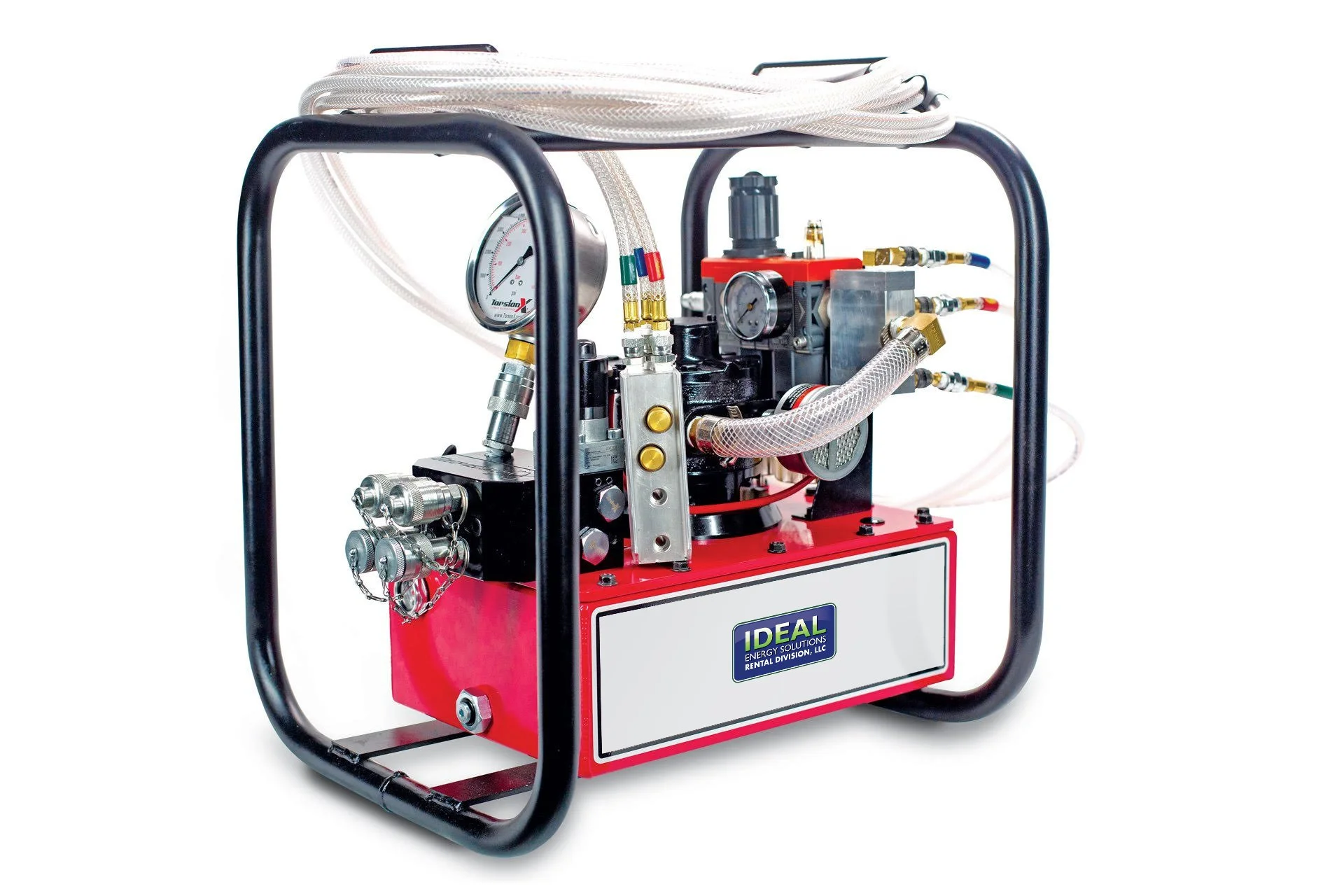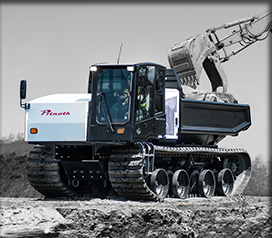Superior Rentals fusion machines: how they work for pipeline welding
A Comprehensive Guide to the Different Kinds Of Oil Field Equipment and Pipeline Equipment Available
The oil and gas market depends greatly on customized devices for reliable extraction and transport. Different sorts of machinery, from piercing rigs to tank, play essential duties in this complex procedure. Each tool serves distinctive features that add to general operational success. Understanding these components is necessary for anyone included in the industry. As the industry progresses, so also do the modern technologies that support it. What developments are on the horizon?

Drilling Rigs: The Foundation of Oil Exploration
Drilling rigs work as the necessary equipment in the domain of oil exploration, enabling companies to accessibility hydrocarbon books buried deep below the Earth's surface area. These rigs are available in different types, including land rigs, offshore rigs, and mobile devices, each made to operate in details settings. Furnished with sophisticated modern technology, drilling rigs can pass through geological formations with precision, making sure efficient resource extraction. The structural honesty and functional abilities of these rigs are important, as they need to stand up to severe problems and significant stress. The choice of a drilling rig impacts the general job cost and timeline, making it an essential factor to consider for oil firms seeking to enhance their exploration initiatives and optimize efficiency in their procedures.
Pumps: Important for Liquid Motion
In the oil extraction procedure, the duty of pumps is significant, promoting the motion of liquids throughout numerous phases of manufacturing. Pumps are necessary for carrying petroleum, water, and various other liquids from underground storage tanks to the surface area and afterwards via pipes to refineries. They come in numerous types, including centrifugal, positive displacement, and submersible pumps, each offering specific objectives based upon the liquid qualities and functional requirements. Centrifugal pumps are typically used for their effectiveness in high-flow applications, while favorable displacement pumps succeed in dealing with thick liquids. The option of pump influences total effectiveness, functional safety and security, and upkeep prices. Appropriate choice and maintenance of pumps are crucial for maximizing manufacturing and decreasing downtime in oil area operations.
Valves: Controlling Flow and Pressure

Shutoffs play an essential role in managing the circulation and stress of fluids within oil areas and pipelines. Numerous kinds of shutoffs serve distinct applications, each designed to meet particular features essential for reliable operation - Superior Oilfield Rentals. Comprehending the qualities and uses these shutoffs is essential for maximizing system performance and safety and security
Sorts of Valves
Necessary components in oil area procedures, valves play a vital duty in controlling the circulation and stress of liquids within pipelines and devices. Different types of valves are used to fulfill the varied requirements of oil and gas production. Common kinds include gateway valves, which supply a straight-line flow and marginal stress drop; globe valves, understood for their throttling capabilities; and ball valves, acknowledged for their quick on/off control. Additionally, check shutoffs prevent heartburn, while butterfly shutoffs offer a light-weight option for managing circulation. Each shutoff type is made with specific materials and arrangements to stand up to the extreme conditions usually located in oil areas, guaranteeing integrity and efficiency in procedures. Understanding these types is important for efficient system administration.
Valve Applications and Features
While different types of valves serve unique functions, their primary applications rotate around managing circulation and stress within oil and gas systems. Valves such as gateway, globe, and sphere shutoffs control liquid motion, making sure peak performance and safety and security. Gateway shutoffs are frequently used for on/off control, giving marginal flow resistance. World shutoffs, on the various other hand, offer precise circulation policy, making them suitable for throttling applications. Ball valves are preferred for their fast operation and tight securing capabilities. Additionally, pressure alleviation valves are essential for avoiding system overpressure, protecting devices honesty. In general, the ideal option and application of valves improve functional performance, making certain the reputable transportation of oil and gas via here pipes and handling centers.
Compressors: Enhancing Gas Transport
Compressors play an essential role in the reliable transportation of all-natural gas, guaranteeing that it relocates efficiently with pipelines over long ranges. These tools increase the pressure of gas, permitting it to get rid of rubbing and altitude changes within the pipeline system. Additionally, compressors facilitate the harmonizing of supply and need, suiting changes in usage and production prices. Different types of compressors are employed in the industry, including centrifugal, reciprocating, and rotary screw compressors, each offering distinct advantages based on the functional requirements. Regular upkeep of these compressors is important to maximize efficiency and reduce downtime, eventually adding to a trustworthy gas transportation network. Their critical function underscores the significance of compressors in the overall oil and gas infrastructure.
Storage Tanks: Safe and Effective Liquid Administration
Reliable transport of gas depends on numerous support group, among which is the appropriate management of storage space tanks. These tanks play an essential role in safely including liquids, making sure that operational efficiency is kept while decreasing ecological risks. Built from durable products, they are created to endure high stress and harsh aspects. Effectively sized and tactically located, storage space containers help with the smooth circulation of natural gas and various other fluids, avoiding traffic jams in supply chains. Normal upkeep and monitoring are critical to detect leaks or structural problems, advertising security and conformity with governing standards. Inevitably, the effective monitoring of tank is essential for the general honesty and reliability of the oil and gas sector's fluid handling systems.
Pipeline Equipments: Facilities for Transport
Pipeline systems function as the foundation of the oil and gas industry, helping with the efficient transport of hydrocarbons over substantial ranges. These systems are composed of numerous elements, including pipes, shutoffs, pumps, and compressors, all thoroughly designed to guarantee smooth flow. The materials utilized in pipeline building and construction, frequently steel or high-density polyethylene, are chosen for sturdiness and resistance to deterioration. Pipeline networks can extend throughout land and water, connecting manufacturing sites to refineries and circulation. Additionally, advanced technology enables real-time monitoring of circulation rates and pressure degrees, improving operational effectiveness. The critical positioning of these pipes minimizes ecological impact while taking full advantage of source availability, thus playing a crucial role in meeting power demands around the world.
Security Equipment: Guaranteeing Employee and Environmental Management
The operation of pipeline systems, while vital for energy transportation, additionally offers substantial safety difficulties for employees and the atmosphere. Safety equipment plays a substantial role in reducing these threats. Individual safety tools (PPE) such as helmets, handwear covers, and non-slip footwear safeguards employees from physical hazards. Additionally, gas detection systems keep an eye on for leaks, guaranteeing that damaging materials do not posture a threat to personnel or the surrounding ecosystem. Emergency situation shutdown systems are imperative for swiftly halting operations during a crisis, preventing potential calamities. Spill control materials, including absorbents and barriers, are basic for decreasing environmental influence. On the whole, purchasing comprehensive safety equipment is crucial for preserving functional honesty and shielding both employees and the atmosphere in the oil and gas sector.

Regularly Asked Concerns
How Do I Choose the Right Oil Field Equipment for My Task?
Selecting the appropriate oil area tools includes assessing project specifications, budget plan restraints, and functional demands. Think about elements such as devices integrity, compatibility with existing systems, and the supplier's online reputation to ensure peak performance and safety and security.
What Are the Upkeep Needs for Oil Field Equipment?
Upkeep requirements for oil area equipment include regular evaluations, lubrication, and timely repair work. Operators ought to likewise adhere to producer guidelines, screen efficiency metrics, and assurance conformity with safety and security guidelines to enhance durability and performance.

How Can I Guarantee Conformity With Environmental Laws?
To guarantee compliance with environmental policies, business need to carry out regular audits, carry out best practices, purchase training, preserve correct documents, and remain updated on regulation (Superior Oilfield Rentals). Partnership with environmental companies can additionally enhance adherence to guidelines
What Is the Average Life-span of Pipeline Equipment?
The typical life expectancy of pipeline devices generally varies from 20 to 50 years, depending upon variables such as material high quality, ecological conditions, and maintenance techniques. Normal inspections can substantially affect longevity and operational effectiveness.
Just how Do I Safely Deliver Oil Field Equipment to Remote Locations?
Carrying oil field equipment to remote places requires mindful preparation, including route assessment, safeguarding permits, using suitable cars, and making certain safety procedures are followed. Correct training and communication among crews are crucial for effective transportation.